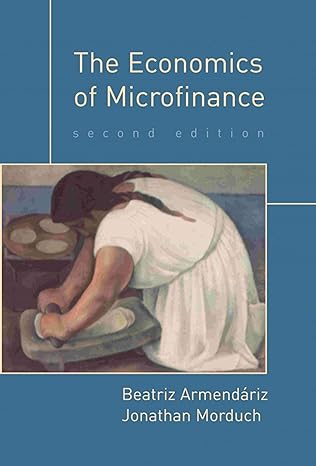Consider the same economy as in exercise 7. But suppose that we now have y = ($380,)
Question:
Consider the same economy as in exercise 7. But suppose that we now have y = \($380,\) δ = 0.75, and K = \($150.\) Assume that the bank is perfectly competitive, that the borrower is protected by limited liability, and that the production technology has constant returns to scale. Will the bank be willing to extend loans in this case? Now suppose that instead of extending the same loan at date 2, the bank can increase the size of the loan by a factor λ = 1.5 in period 2. Would you expect the bank to actually offer a loan contract in this case?
Data from in Exercise 7
Consider an economy with risk-neutral individuals. And suppose the following timing of events: At date 0, an individual wants to borrow an amount I in order to invest in a project that yields a gross return y with certainty at date 1. The bank cannot verify the return realization on that individual’s project, but it knows that the return should be y. Now suppose that, conditioning on the borrower repaying an amount R, the bank will extend a new loan of size I at date 1. The borrower then invests the entire proceeds from the new loan I, and obtains y at date 2 with certainty. But if the borrower defaults at date 1, that is, if she fails to repay R, the bank does not extend a new loan I at date 1.
Therefore, the borrower can not invest. The lender’s gross cost of lending I is K. Let d denote the borrower’s discount factor. Define the R at which the bank would wish to extend a loan and the borrower would wish to repay.
Step by Step Answer:

The Economics Of Microfinance
ISBN: 978-0262513982
2nd Edition
Authors: Beatriz Armendariz ,jonathan Morduch





